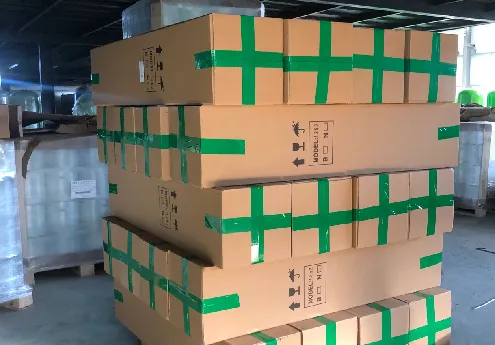loading...
- No. 9, Xingyuan South Street, Dongwaihuan Road, Zaoqiang County, Hengshui, Hebei, China
- admin@zjcomposites.com
- +86 15097380338
- Welcome to visit our website!
activated carbon filter vessel
The Role of Activated Carbon Filter Vessels in Water and Air Purification
Activated carbon filter vessels play a crucial role in the purification of both air and water, serving as a vital component in various industrial, commercial, and residential applications. Their unique properties make them highly effective in capturing impurities, making them indispensable in ensuring clean and safe environments.
Activated carbon, also known as activated charcoal, is a form of carbon that has been processed to have small, low-volume pores that increase the surface area available for adsorption or chemical reactions. This physical structure allows activated carbon to trap a wide range of contaminants, from volatile organic compounds (VOCs) to harmful chemicals and heavy metals. As a result, activated carbon filter vessels are widely utilized in many applications ranging from water treatment facilities to air purifiers in homes and offices.
Water Purification
In the context of water purification, activated carbon filter vessels are particularly effective at removing chlorine, sediments, volatile organic compounds, and other harmful pollutants from water supplies. The filtration process typically involves passing water through a vessel filled with activated carbon. As water flows through the carbon, various contaminants are adsorbed onto the surface of the carbon particles, leading to improved water quality.
These filter vessels can come in various forms, including granular activated carbon (GAC) and powdered activated carbon (PAC). GAC is commonly used in larger systems, such as municipal water treatment plants, due to its effective adsorption capacity and slower flow rates, allowing for maximum contact time between the water and carbon. PAC, on the other hand, is typically used in smaller applications or for emergency treatment and can be added to water directly.
The use of activated carbon filter vessels in residential settings has also gained popularity. Many homeowners utilize activated carbon water filters to improve the taste and odor of their tap water, making it safer for drinking and cooking. The effectiveness of these filters often leads to a significant reduction in harmful substances, protecting family health.
Air Filtration
activated carbon filter vessel

In addition to water, activated carbon filter vessels are equally effective in purifying air. They are commonly found in air purifiers, HVAC systems, and industrial processes. Indoor air quality is a growing concern, especially in urban areas where pollution levels are high. Activated carbon filters help in reducing hazardous air pollutants, allergens, and musty odors, creating a healthier living environment.
When the air passes through a vessel filled with activated carbon, various harmful particles, such as smoke, dust, and VOCs, adhere to the porous surface of the carbon. This process not only cleans the air but also helps eliminate unpleasant odors, making spaces more comfortable and enjoyable.
Maintenance and Lifespan
One of the important considerations when using activated carbon filter vessels is their maintenance and lifespan. The effectiveness of activated carbon filters diminishes over time as the carbon becomes saturated with adsorbed pollutants. Regular replacement or regeneration of the activated carbon is essential to maintain optimal performance.
Depending on the type of application and the concentration of pollutants being filtered, carbon filters may need to be replaced every few months to several years. It's crucial for users to monitor their filter's condition and perform necessary maintenance to ensure continued efficacy.
Conclusion
Activated carbon filter vessels are essential tools in the fight against pollution in our water and air. Their ability to adsorb a wide range of contaminants makes them invaluable in both industrial applications and everyday life. As awareness of environmental health continues to grow, the demand for efficient and effective filtration solutions like activated carbon filters is likely to increase. By investing in these technologies, we can ensure cleaner water, fresher air, and a healthier future for ourselves and generations to come.
-
The Rise of FRP Profiles: Strong, Lightweight, and Built to LastNewsJul.14,2025
-
SMC Panel Tanks: A Modern Water Storage Solution for All EnvironmentsNewsJul.14,2025
-
GRP Grating: A Modern Solution for Safe and Durable Access SystemsNewsJul.14,2025
-
Galvanized Steel Water Tanks: Durable, Reliable, and Ready for UseNewsJul.14,2025
-
FRP Mini Mesh Grating: The Safer, Smarter Flooring SolutionNewsJul.14,2025
-
Exploring FRP Vessels: Durable Solutions for Modern Fluid HandlingNewsJul.14,2025
-
GRP Structures: The Future of Lightweight, High-Performance EngineeringNewsJun.20,2025
